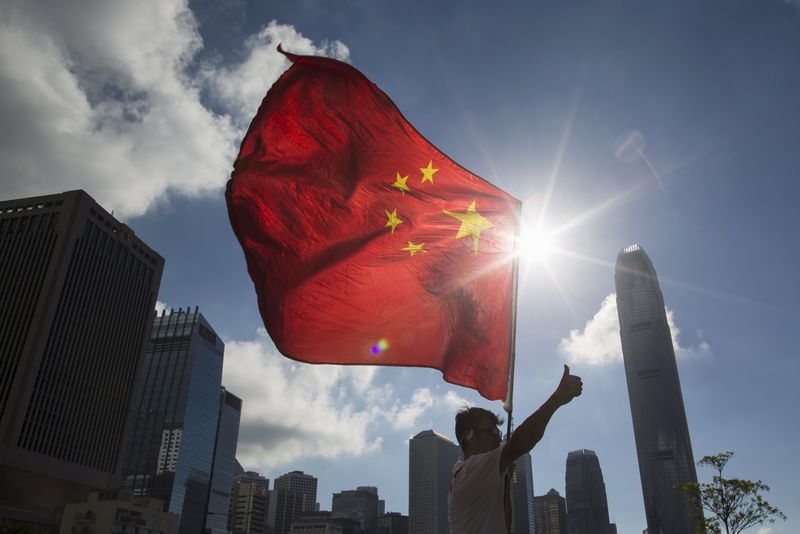By Michael Martina
BEIJING, Nov 18 (Reuters) - China will position itself as free trade's new champion at an Asia-Pacific summit this weekend, with the Communist government seeking to project economic leadership as a U.S.-led Pacific Rim trade pact languishes under President-elect Donald Trump.
Beijing aims to capitalise on the Trump-induced coma of the Trans-Pacific Partnership (TPP), with President Xi Jinping selling alternate visions for regional trade at the Asia-Pacific Economic Cooperation (APEC) meeting this weekend in Peru.
"If the U.S. gives up its leadership here, of course China will take the role," said Tu Xinquan, a trade expert at Beijing's University of International Business and Economics, who has advised China's government on trade issues.
On the campaign trail, Trump labelled the TPP, championed by President Barack Obama, a "disaster". Obama last week abandoned efforts to win congressional approval for the TPP before Trump takes office, saying its fate was up to the President-elect and Republican lawmakers.
The China-backed Regional Comprehensive Economic Partnership (RCEP), a rival pact that excludes the United States, has become the front-runner for new free trade deals in the region.
The RCEP and the TPP -- which excludes China -- were viewed as parallel, if competing pathways, to an eventual broader Asia-Pacific free trade zone. But when Beijing hosted the APEC meeting in 2014 and pushed the Free Trade Area of the Asia-Pacific (FTAAP) as a framework for liberalising Pacific Rim trade, the United States saw it as a distraction from TPP.
Now, the RCEP is likely the main avenue to a future FTAAP, giving China, as the largest economy among the deal's 16 countries, a driving role in the future of Asia-Pacific trade.
Obama had argued that the TPP would allow the United States and not China to write the rules of trade for the region.
'GEOPOLITICAL REALITIES
China's efforts to push trade pacts coincide with other soft power initiatives aimed at cementing the country's economic influence, such as Xi's global One Belt, One Road infrastructure plan and the Beijing-led Asian Infrastructure Investment Bank.
Claire Reade, senior counsel at U.S. law firm Arnold & Porter and a former Assistant U.S. Trade Representative for China Affairs, said China would seek to contrast its commitment to the region with U.S. inconstancy.
"The geopolitical realities and China's economic diplomacy make it seem unlikely the smaller countries in the region would spurn China's leadership," she said.
In a sign of frustration with the United States among some TPP members, Peru's president has said that Pacific-rim countries can forge a new trade deal to replace TPP that includes China and Russia but not the United States. week, Peru's trade minister said it was engaging China on ways to get involved with RCEP negotiations. If Lima joined the talks, which is unlikely until existing members come to terms, it would be the only participant from the Americas and could encourage other TPP signatories in Latin America to follow suit. TPP members, including staunch U.S. ally Australia, have said they will pursue other free trade options in Asia.
Malaysia has said it would shift its focus from TPP to RCEP, and Vietnam, which is also party to both deals, will shelve its ratification of TPP due to political changes in Washington. OFF-SHORING
Trade experts say that in addition to dealing a blow to U.S. influence, TPP's failure could mean U.S. goods lose out on lower tariffs and market access to RCEP countries, including Japan, China and India. Proposed dates for an agreement have come and gone, but an RCEP deal could be reached as soon as next year.
Deborah Elms, who runs the Singapore-based Asian Trade Centre consultancy and advises governments, said the lack of U.S. involvement in future trade deals could spur more off-shoring by U.S. companies.
"If you want to take advantage of RCEP, you need to be in Asia to service Asian markets. That means you need to be physically present with at least some part of your operation," Elms said.
Governments in the region should take advantage of RCEP momentum, she said.
"I would be trumpeting loudly from the rooftops ... Put your whole global operations here to take advantage of the place that is still open for business."
The role-reversal on free trade zones and other uncertainties stemming from Trump's election bolsters China's image, Douglas Paal, vice president for studies at the Carnegie Endowment for International Peace, said at a forum in Beijing on Wednesday.
"Withdrawing from trade agreements, talking about shaking up alliances, talking about pulling out of the climate change agreement, talking about pulling out of Iran - all of these make China look like the responsible stakeholder," Paal said.
